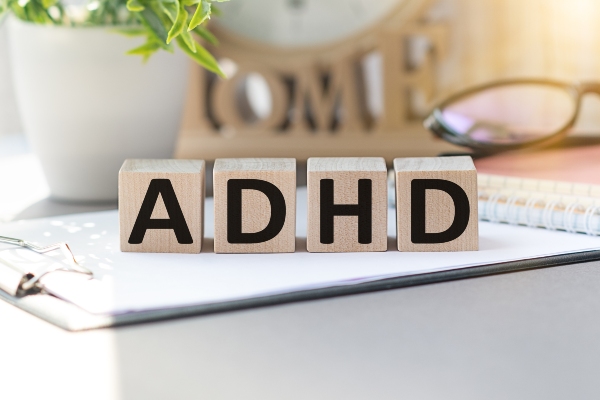How a Psychiatrist Diagnoses Anxiety Disorder

An anxiety disorder can be overwhelming. Normal levels of anxiety arise when there is a stressful situation and then go away later on. A disorder lasts longer than temporary fear. Here are the details on how a psychiatrist performs an anxiety disorder diagnosis.
Performs a physical examination
The doctor will ask about the patient’s lifestyle. Factors, such as medications or specific illnesses, can be affected by or add to anxiety. The same applies to coffee and alcohol consumption. The doctor will watch out for the following physical anxiety symptoms:
- Shaking
- Diarrhea
- Racing heart
- Frequent urination
- Sweating
- Hot flashes
- Shortness of breath
- Vomiting
- Nausea
- Chills
- Twitching
- Dry mouth
- Chest pain
Diagnostic tests
The patient must answer a list of self-assessment questions before any diagnostic testing starts. The questionnaire answers can help the doctor decide whether the patient has an anxiety disorder or is reacting to a specific event. If the patient does have an anxiety disorder, a structured interview will come next. This will be part of a clinical evaluation. Here are some of the tests that the psychiatrist can use to assess the patient’s anxiety level:
- The BAI or Beck Anxiety Inventory can measure the level of one’s anxiety. This can either be in the form of a self-test or an oral test by a professional. This test has 21 multiple-choice questions that ask to rate one’s symptoms in the past week.
- The Zung Self-Rating Anxiety Scale is a 20-question test. It asks the patient to rate subjects like nervousness or nightmares.
- The YBOCS or Yale-Brown Obsessive-Compulsive Scale measures the level of obsessive-compulsive disorder in the patient. There is a symptom checklist from which the patient will choose the three most disturbing items. Rating how severe the symptoms are will follow. The psychiatrist will ask if the patient has compulsions or obsessions in the past.
- The HAM-A or Hamilton Anxiety Scale was developed in 1959. It is used in many research and clinical settings. There are 14 questions that rate tension, moods, and fears. They also rate behavioral, physical, and mental traits.
- The Penn State Worry Questionnaire can measure the level of worry. It can differentiate between generalized anxiety and social anxiety disorders. This test has 16 questions that measure the worry’s uncontrollability, as well as excessiveness and generality.
- The SPIN, or Social Phobia Inventory, has 17 self-assessment questions. It measures the patient’s social phobia. A zero rate means there is no anxiety. A four rate means there is extreme anxiety.
- The Generalized Anxiety Disorder Scale has seven questions. It is a tool for screening generalized anxiety disorder. The psychiatrist will ask how often the patient has been bothered by irritability in the past two weeks.
The criteria for diagnosis
The psychiatrist’s diagnosis of anxiety disorder depends on the patient’s symptom description. Psychiatrists use the DSM or Diagnostic and Statistical Manual of Mental Disorders when diagnosing anxiety disorders. When it comes to anxiety, criteria differ. One is that the symptoms are not from the effects of medical conditions or medications.
Another one of the criteria is a high level of worry happens most days about different things for more than six months. The psychiatrist can also determine if the symptoms are not brought about by another mental illness. The symptoms of anxiety may also be disrupting one’s life. Seeing if the patient has three of these symptoms: difficulty concentrating, restlessness, irritability, sleep disturbance, muscle tension, and fatigue is part of the criteria.
What to do after receiving the diagnosis
The patient must manage anxiety instead of curing or stopping it. Controlling the anxiety symptoms can help an individual have a better quality of life. This is an effective way of keeping the anxiety symptoms from interfering with one’s goals or activities. The patient should be open with close friends and family about the diagnosis. They must understand the patient’s anxiety. That way, communicating the patient’s needs and thoughts is easier.
Taking prescription medications for anxiety can help with the symptoms. A psychiatrist can provide these medications. The patient must also stick to the treatment plan so that the medications can be effective. It is ideal to start the treatment as early as possible.
Changing one’s lifestyle can help relieve stress. It can reduce anxiety’s impact on the patient’s health. Regular exercise, enjoyable activities, and good socialization can help. Avoiding substances like alcohol and nicotine is also ideal. Joining a support group or seeing a therapist will allow the patient to talk about anxiety. These techniques can help the patient avoid anxiety triggers and control the symptoms.
Proper diagnosis of anxiety disorder can lead to its proper treatment and management
Your psychiatrist can determine if you have an anxiety disorder. Answering some questions and discussing the symptoms are part of the diagnosing process. Once it is final, you will go through prescribed treatments. Working with your psychiatrist is necessary for improving your quality of life.
Get more information about Future Psych Ketamine Clinics in Myrtle Beach at https://mb.futurepsychsolutions.com.
Check out what others are saying about our services on Yelp: Anxiety Disorder in Myrtle Beach, SC.
Recent Posts
Major depressive disorder treatment plans offer a structured and innovative approach to alleviating the burdens of depression. As mental health care evolves, new methods have gained recognition for their effectiveness in treating symptoms of this mental health condition. Knowing what to expect from these treatment plans can help create realistic expectations and improve your overall…
Attention-deficit/hyperactivity disorder (ADHD) is a neurodevelopmental disorder that affects millions of people worldwide. Common symptoms of ADHD include the inability to pay attention, acting impulsively, and having uncontrollable energy. ADHD significantly impacts how a person goes about their daily life. Fortunately, many treatment options are available to manage ADHD symptoms and improve overall functioning.Prescription medication…
Attention-Deficit/Hyperactivity Disorder (ADHD) is a neurodevelopmental disorder affecting children and adults. Fortunately, there are many ADHD treatments available. Early diagnosis and treatment are crucial for managing symptoms and improving quality of life. Whether you or a loved one is living with ADHD, it is important to understand multiple treatment options exist.The diagnosis of ADHD involves…
In recent years, ketamine treatment has emerged as an innovative therapeutic option for patients grappling with various mental health disorders, providing new hope where conventional treatments have fallen short. Initially known primarily as an anesthetic agent, ketamine's application within psychiatry has transformed mental health care significantly, particularly for those suffering from severe, treatment-resistant conditions.Ketamine functions…


